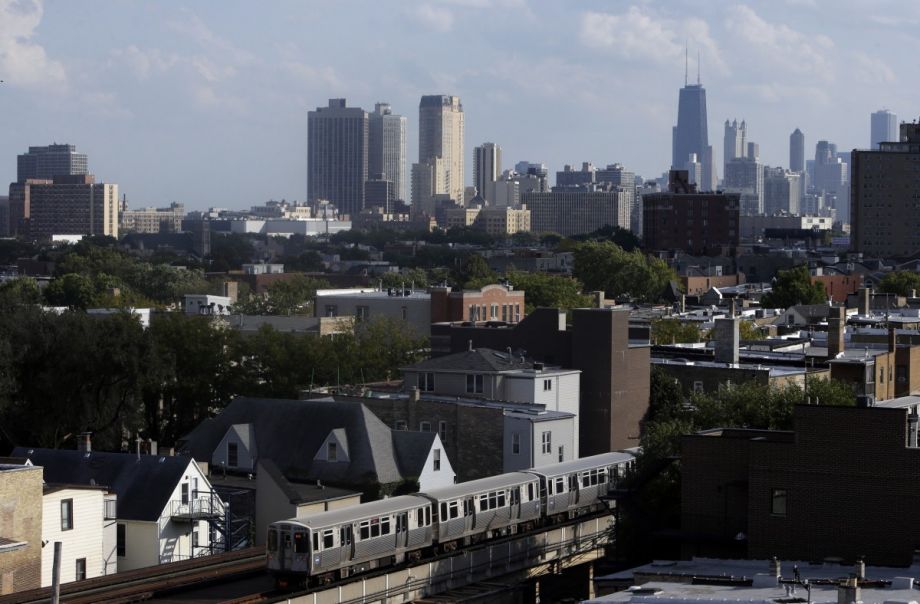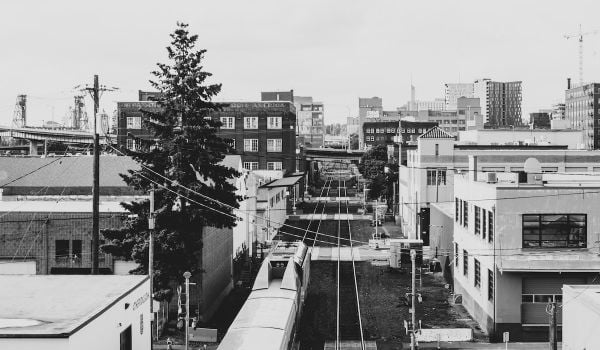In 1974, the North Side Community Federal Credit Union was founded in Chicago to combat redlining. At the time, the practice was keeping residents in Uptown from accessing loans for home ownership. A group of seven women came together to find an alternative, eventually forming the North Side Community Federal Credit Union.
North Side has maintained its focus on increasing access to capital and financial services — it’s a member of Inclusiv, formerly the National Federation of Community Development Credit Unions; it was certified as a Community Development Financial Institution (CDFI) soon after the certification was established by the Riegle Community Development and Regulatory Improvement Act of 1994. One of the primary requirements of certification has been a commitment to targeting least 60 percent of lending and other financial services to low- and moderate-income neighborhoods.
The credit union’s small size — only $9 million in assets — and a commitment to its founding missing have offered some unique opportunities, says Sarah Marshall, its chief executive. One is its status as a HUD-approved housing counseling agency for first-time home buyers and foreclosure prevention.
“There are only 16 credit unions across the country with a housing counseling agency,” Marshall says.
A new opportunity to meet its mission emerged recently after North Side’s leadership started hearing of condominium associations around Uptown struggling to fund necessary repairs.
With a grant from the Chicago Community Trust, North Side commissioned the Institute for Housing Studies at DePaul University to examine the diversity of condominium stock in Chicago, looking for homeowners associations at risk of financial distress.
The study, released this month, found a disproportionate amount of condominium homeowner associations in Chicago’s lower-income neighborhoods at an increased risk of foreclosure and other economic stress.
Condominiums make up a critical portion of the city’s housing, but little is known about the diversity of the stock or challenges facing certain types of buildings and homeowners associations. “There’s very little research I’m aware of on the condo market,” says Geoff Smith, executive director at the Institute for Housing Studies.
Overall, while the vast majority of Chicago’s condos are in higher-income neighborhoods, the researchers estimated there are 54,171 condominium units in low- and moderate-income neighborhoods of Chicago, accounting for 23.6 percent of the overall condominium stock in the city.
Smith adds there wasn’t much research examining the size of condo buildings, a key question of the study. Researchers ultimately found that condos in lower-income neighborhoods are more likely to be smaller, meaning their homeowner associations are smaller and more reliant on each individual homeowner. Because each individual owner makes up a larger overall share of building ownership, they’re responsible for paying a larger share of the homeowner association budget than in larger buildings. That makes smaller buildings more vulnerable to missed payments or vacant units that can’t find an owner who can access a mortgage.
Any lack of payment can put additional financial pressure on other owners to pay for ongoing building maintenance and operations. It can also make it difficult to build up reserves to pay for short-term emergency repairs or more major maintenance projects.
“This combination of limited financial resources and deferred maintenance can lead to increased instability in the building and for other owners,” the study says.
Such instability can cause a domino effect: smaller condos in Chicago’s lower-income neighborhoods are most likely to have high concentrations of foreclosure activity. After studying over 400 buildings, researchers found that nearly 22 percent of five to 19-unit condo buildings in these areas had high foreclosure concentrations.
Alongside the lack of condo research, the credit union felt there was a lack of education in regards to condo ownership — despite the housing stock often being an entry point to homeownership for first-time buyers and moderate-income households.
“The average first-time homebuyer might look at a small condo building … and a lot of these condos have low entry points in terms of costs,” says Marshall. “[But] they don’t understand they’re almost walking into a small business when they purchase a condo that’s self-managed.”
North Side Community Federal Credit Union plans to address some of the issues revealed in the study. In the coming months, according to Marshall, the credit union will offer condo-specific education. “We’re working on a curriculum to educate people who are thinking about purchasing their first home in a condo building, and also a workshop on helping people in this situation already,” she says.
By offering resources to existing condo owners to help get their homeowners association in order, as well as building financials, “our goal is to get these buildings to become creditworthy,” Marshall says.
The credit union already identified the Chicago north side neighborhood of Edgewater, which has a number of homeowners associations, to begin outreach efforts. The credit union is also keeping an eye out in neighborhoods with high concentrations of new development, which often see an influx of small condo buildings. “There’s this component of getting ahead of the problem,” Marshall says.
Ultimately, the credit union wants to provide a financial product geared toward small condo buildings, which is not yet finalized.
“Once these associations become creditworthy,” Marshall says, “The goal is to be able to fill that gap.”

Emily Nonko is a social justice and solutions-oriented reporter based in Brooklyn, New York. She covers a range of topics for Next City, including arts and culture, housing, movement building and transit.
Follow Emily .(JavaScript must be enabled to view this email address)
















